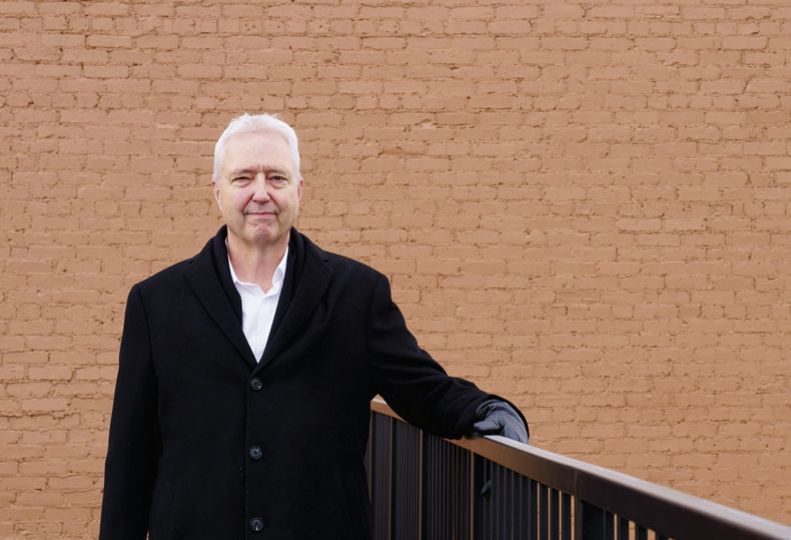
Home » Change in Behavior: Frontier Behavioral Health moves to new model
Change in Behavior: Frontier Behavioral Health moves to new model
Method intended to address worker shortage

March 2, 2023
Frontier Behavioral Health has created a new model of caring for clients that relies more heavily on employees who have bachelor’s degrees that supplement those who have more advanced degree in an industry desperate for workers.
The Collaborative Alliance for Recovery and Empowerment model was implemented exclusively in outpatient operations at Frontier early last year, says Jeff Thomas, CEO of the Spokane-based nonprofit behavioral health organization.
“The impetus for that was, in large measure, the significant behavioral health workforce shortage crisis,” he says. “There’s a lack of sufficient workforce to continue to be providing services in the traditional models that we’d utilized.”
Since launching the CARE model, unfilled positions at the outpatient arm of the nonprofit dropped to 30% from 50%, Thomas says.
Of the 130 people currently providing outpatient clinical services at Frontier, Thomas says about 65 have a bachelor’s degree.
“When we’re fully into this model, which will be a while, it will probably be more like two-thirds of the clinical staff,” he says.
In total, Frontier employs about 675 people throughout its inpatient, outpatient, and crisis services. The organization serves about 20,000 clients annually, Thomas says.
Thomas says the traditional model has relied heavily on employees who have at least a master’s degree in social work, psychology, or counseling.
The CARE model uses bachelor’s-level employees as part of a team of care providers. They work with clients to develop care plans, as well as provide education and individual therapy and give crisis intervention.
“They become an anchor for somebody in their care,” says Thomas (no relation to this story’s author).
Bachelor’s-level staff can help to connect clients with other care providers, such as care navigators who can help clients access services such as dental health care, peer support specialists who have experienced mental illness or substance use, and psychiatric and psychological care service providers.
“These have to be warm handoffs,” Thomas says. “There have to be ways in which it’s fluid and seamless for the individual receiving care and for their family members, otherwise it doesn’t work.”
Thomas says that a crucial part of the CARE model is Frontier Behavioral Health’s clinical training academy, which offers an overview of the services Frontier provides, as well as information and training on evidence-based practices, crisis intervention, and addiction treatment.
Staff members who have advanced degrees typically have undergone an internship or practicum of 800 hours of clinical experience, Thomas says. However, workers who have bachelor’s degrees typically have less than 100 hours of clinical internship experience. Many are unable to find an internship position at that level, he says.
Thomas says the training academy provides more than 100 hours of a mix of online and in-person classes, as well as coaching and job-shadowing experiences. The academy takes eight to 10 weeks to complete, and is free to bachelor’s-level Frontier workers.
Thomas says Eastern Washington University, Gonzaga University, Washington State University, and Whitworth University have been enthusiastic about working with Frontier to spread word of the CARE model to current undergraduate students.
The universities also have been working to connect students with Frontier for internship opportunities. Prior to the CARE model, the nonprofit didn’t have an internship program for those with bachelor’s degrees, Thomas says, though it had long provided about 30 internships per year for master’s-level students.
“This past spring and summer, we had close to 30 bachelor’s-level interns with us,” Thomas says. “It creates an opportunity for that untapped work pool to be working in our field in community behavioral health.”
Frontier surveyed the four universities and found that about 20% of those graduating with a bachelor’s degree in a relevant field immediately move on to an advanced degree program, Thomas says.
“Of that other 80%, many are going to do something else,” he says. “Statistically, there are many individuals who get a bachelor’s degree in social work, psychology, or counseling, and they end up doing something else for a career.”
Many people who have a bachelor’s degree in one of those fields can’t afford to go on to a master’s or doctorate program, he says. The CARE model provides a way for those people to enter the behavioral health field without contending with the time and financial expenses of an advanced degree.
Thomas says the model will continue to change as different needs and opportunities within it are identified.
“One of the lessons learned that has assisted in the evolution of our clinical training academy is, we have to pace the learning,” Thomas says.
Originally, the academy ran for four to six weeks. Thomas says that wasn’t enough time.
“There’s only so much information that you can expect somebody to absorb in a short period of time without being overwhelmed,” he says.
Thomas says Frontier also has dedicated a couple of staff members to the academy. One position manages the academy, acts as a key faculty member, and oversees internships. Another is a part-time teaching position for the academy.
Frontier’s current annual budget is $95 million and has increased steadily over the years, he says.
Launching the academy cost Frontier hundreds of thousands of dollars, Thomas says, although he declines to disclose a specific amount.
“It’s an investment we’re making that’s a reflection of our belief in the academy and the role it plays in helping this model be successful,” Thomas says.
Latest News Special Report Health Care
Related Articles
Related Products

![Brad head shot[1] web](https://www.spokanejournal.com/ext/resources/2025/03/10/thumb/Brad-Head-Shot[1]_web.jpg?1741642753)

